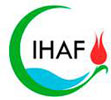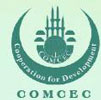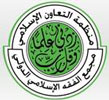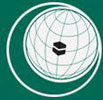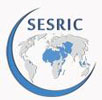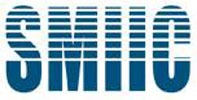WHAT IS HALAL?
Halal is an Arabic term meaning “lawful or permissible” and it does not only encompass food and drink, but all matters of daily life. When it comes to halal food, most people think of meat products only. However, halal covers foods, particularly processed foods, pharmaceuticals and non-food items like cosmetics are Halal or haram (unlawful, not permissible (the opposite of Halal)). Halal is not a new term. It is as old as the initiation of man (Adam), who was the representative of God on earth.
The Halal market is fast emerging most lucrative and influential consumer arena in the world today, covering a wide array of food and non-food products, including pharmaceuticals, logistics, tourism, cosmetics, healthcare, toiletries and other non-consumables valued at approximately USD 2.77 trillion.
WHAT IS HALAL AUDITOR – LEAD AUDITOR TRAINING COURSE?
Allah (swt) says in the Qur’an: “O you who believe! Eat of the lawful things that I have provided you with, and be grateful to Allah, if it is (indeed) Him Whom you worship.”
[Surah: Al-Baqarah, Verse: 172]
Hence, it is obligatory for everyone to get enough knowledge of “What is Halal and What is Haram”.Halal infrastructure needs also to be operated in an efficient and credible manner in line with world’s best halal practices.
We see that Halal conformity assessment system and the procedure for its recognition is new field in the Global World. It entails expertise and competence according to Halal Standards and Guidelines acceptable at least among 57 Muslim OIC Countries. In this regard Halal standards have been developed by the Standardization Expert Group (SEG) of the Organization of the Islamic Conference (OIC), and adopted by the Standards and Metrology Institute for Islamic Countries (SMIIC) Technical Committee on Halal Food.
Keeping in view the target the basic course has been specially designed on OIC/SMIIC 1: 2011 “GENERAL GUIDELINES ON HALAL FOOD”, for all professionals who are interested to be recognized Halal Auditors/Lead Auditors in the field of halal industry.This course focuses the basic requirements that shall be followed at each stage of food chain including, receiving, preparation, processing, sorting, determination, packaging, labelling, marking, controlling, handling, transportation, distribution, storage and service of Halal food and its products based on Islamic rules.
This course has following 4-Modules.
MODULE – 1 – Concept of Halal
- Halal Auditor/Lead Auditor Course Introduction- Course Objectives
- What is Halal? Why Halal?
- How Halal?
- Halal Fundamental Requirements (Sharia Law)
- Halal and Tayyab in Islam
- Halal meat production and export
- Status of food in the Holy Scriptures.
- Research needs in Halal foods and non-food products
- Introduction to OIC-SMIIC-Halal Guidelines
- Principles of Halal and Haram
MODULE – 2 – Concept, Introduction & Detail of Halal Standards
- Overview of SMIIC-1, General Guideline on Halal Food
- General Terms and Definitions - Clause 4.0 Products/Services
- Clause 5.0 Requirements, Sources of Food, Rules of slaughtering
- Clause 6.0 Food Processing
- Clause 7.0 Machinery, Utensils, Production Lines ;
- Clause 8.0 Storage, Display, Service And Transport
- Clause 9.0 Hygiene, Sanitation And Food Safety;
- Clause 10.0 Validation And Verification;
- Clause 11.0 Identification And Traceability
- Clause 12.0 – Presentation For The Market
- Clause 13.0- Legal Requirements
MODULE – 3 – Halal Audit Process & Techniques
- Auditor’s skills – ISO 19011
- Audit Report Writing
- Audit Checklist Preparation
- Corrective Action Request
- Formulation of Non conformances
- Audit Techniques – Horizontal and Vertical Audits
- Role & Responsibilities of Halal Auditors & Lead Auditors.
MODULE – 4 – Halal Certification Process
- Halal Conformity Assessment Process
- Evolution of Halal Certification
- Halal Certification Process
- Benefits of Halal certification and its value to the food industries
- Halal Inspection and its process.
Targeted Trainees
- All Managers/Executives, Auditors, Scientist, Engineers, Doctors, Auditors and Consultants.
- Top Management and Executives of Food Industry,
- Policy Makers,
- Halal internal auditors
- Halal Inspectors
- Food Entrepreneurs,
- Food Managers,
- Traders, Processors and Exporters of meat fruits, vegetables, livestock and poultry products etc
- Personnel from certification bodies aspiring to become Halal Lead Auditors
Course Duration:
The course duration is 3 Months.
Course Fee:
US $ 600.

